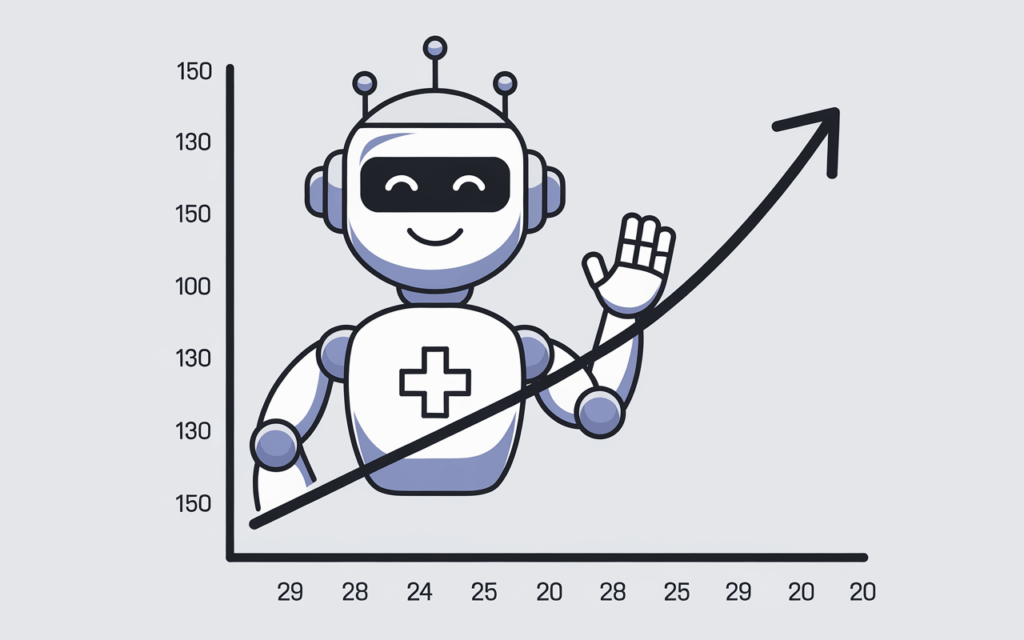Almost 40% of Americans Trust AI Chatbots for Medical Advice 🤖💊
In a world that’s becoming increasingly driven by technology, a recent survey reveals a striking trend: nearly 40% of Americans are turning to AI chatbots like ChatGPT for medical advice! It’s pretty eye-opening and here’s why. 🧐
Trusting the Digital Doctor? 📊
According to a survey conducted by Censuswide, commissioned by Drip Hydration, 39% of respondents stated they trust AI tools in navigating healthcare decisions. This sentiment is intriguing considering the complicated relationship many have with our current healthcare system. In fact, while 31% expressed neutrality about AI’s usefulness in medical inquiries, 30% outright distrusted them. 🤔
But why the growing reliance on chatbots? One possibility is dissatisfaction with traditional healthcare options. With 23% using chatbots to circumvent medical costs, and a similar percentage seeking assistance in preparing for doctor’s visits, many are clearly exploring alternatives. 💰
The Rise of AI in Healthcare 🏥
AI’s presence in daily life isn’t slowing down. From fitness trackers to personal assistants, the integration of artificial intelligence touches various facets of our lives. And now, as this technology evolves, it seems some users are comfortable leaning on AI for critical health information. However, can we trust these virtual advisors?
A study from 2022 showed that 26% of AI responses to health questions included disclaimers that these technologies aren’t substitutes for real doctors. Fast forward to 2025, and less than 1% of these responses contained any such warnings! 📉 This alarming decline raises significant concerns about the perceived credibility of AI chatbots.
The Downside of Trusting AI 🤨
Concerns persist about the accuracy of AI-generated advice. A recent study showed that some individuals rated AI responses with low accuracy as highly as those from real physicians. Scary, right? This misplaced confidence could lead individuals to make harmful health decisions based on faulty data. ⚠️
Moreover, LLMs (Large Language Models) don’t comply with HIPAA regulations, meaning sensitive health data could be exposed during interactions. Yikes! 😱
Gender and Age Divide in AI Trust 🧓👩🦳👨🦰
Interestingly, the survey indicates that 48% of men trust AI for health information, compared to 31% of women. Middle-aged adults (especially those aged 45-54) also show higher trust levels, which raises questions about generational attitudes towards technology in healthcare.
Moving Forward: The Skepticism Needed 🤔🔍
It’s clear that our relationship with healthcare is evolving as technology becomes more embedded into our lives. However, this change must come with a healthy dose of skepticism.
Unless we encourage a culture of questioning AI, we may find ourselves in a precarious situation regarding our health, trusting bots that, despite their efficiency, do not replace human expertise.
As technology advances, let’s be informed consumers and ensure that we engage critically with AI sources. Just because something is accessible 24/7 doesn’t mean it’s always the best option! 👍
Let’s keep the conversation going! What are your thoughts on seeking medical advice from AI chatbots?
#AIChatbots #HealthcareInnovation
👉 Explore more insights and stay updated on this fascinating topic by visiting the link to the original article! Rolling Stone Article

More Stories
Exciting News: The Summer I Turned Pretty is Becoming a Movie
Reflecting on Robert Redford’s Legacy of Integrity and Artistry
Sara Rivers Appeals Dismissal of $60 Million Lawsuit Against Sean Combs: A Fight for Justice in the Entertainment Industry